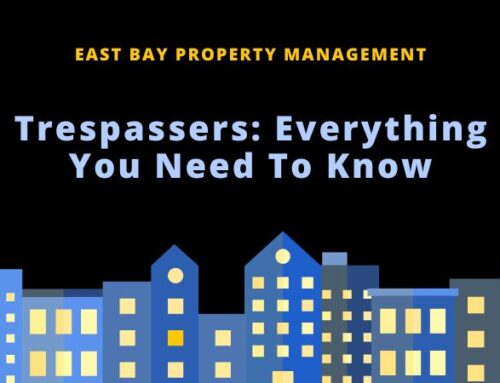If you’re a landlord seeking the best way to communicate with your tenants, you’re not alone! Knowing how and when to communicate effectively with renters can be challenging. In today’s world of technology, there are multiple avenues to reach out to your tenants, but it can be tough to decide which method is the most effective.
Should you opt for traditional phone calls, the convenience of email, or the efficiency of texting? Each method has advantages and disadvantages; weighing them before deciding what works best for you based on your preferences is crucial.
This article will explore the best ways to communicate with your tenants and help you determine the most effective method for your needs. So, let’s dive in and find the best way to keep in touch with your tenants!
Email Communication
Email is one of the most reliable and effective ways to communicate with tenants. Here are some of the pros associated with using email as a communication method:
Ability to Convey Detailed Information
Email allows detailed information to be shared quickly and easily. It’s helpful when dealing with complex topics or sharing documents that cannot be conveyed through other means, such as text messages or phone calls.
Easy-To-Track Communication

Emails are also easy to track and store, which can be helpful when dealing with tenants who need to be reminded of the details of their lease or other information related to their tenancy. This makes it easy for both parties to stay on the same page without searching through multiple conversations and documents.
Formal and Professional
Email is also a great way to maintain a professional relationship with tenants. It allows for clear communication without worrying about misunderstandings that can arise in other forms of communication.
Tips on How to Effectively Use Email
- Always address the recipient by name to help create a connection between sender and receiver.
- Include your contact information in the body of the email.
- Emails should always be professional and courteous, regardless of the topic. This helps ensure messages are taken seriously and understood correctly.
- Write a concise subject line that clearly states what the email is about to help the tenant know what action needs to be taken.
- Always double-check any attachments and proofread your emails before sending them, as spelling and grammar mistakes can create a wrong impression.
- Schedule emails for business hours.
Text Messaging
Text messaging is a convenient way to send short messages or updates to tenants. The pros of using text messaging include the following:
Quick Response Time
Text messages are typically read and responded to faster than emails, which can be beneficial when needing a quick response, such as confirming an appointment or updating tenants on important information.

Easy Accessibility
Tenants often have their phones on them, so sending text messages can help ensure they’re received and read right away.
Cost-Effective
Text messages are also a cost-effective way to communicate with tenants, as there are no associated postage or online fees.
Tips on How to Effectively Use Text Messages
- Keep messages concise and to the point.
- Always get a tenant’s permission before texting them, as this helps create an open line of communication between landlord and tenant.
- Be mindful of the words you use, as slang and abbreviations can be misinterpreted or taken out of context.
Phone Calls
Phone calls are a great way to communicate with tenants directly. They can be useful when additional detail is needed or when speaking with an agitated tenant. The advantages of using phone calls include:
Immediate Response
Phone calls allow for an immediate response from the tenant, which can be beneficial when resolving maintenance emergencies or tenant complaints.
Personal Touch
When speaking with a tenant on the phone, it’s easier to create an interpersonal connection that could help build trust between landlord and tenant.
Ability to Discuss Complex Issues
Phone calls are also a great way to discuss more complex or difficult topics, as it allows both parties to talk and ask questions in real-time without worrying about misunderstandings that can arise in other forms of communication.
Tips on How to Effectively Use Phone Calls

- Introduce yourself and explain why you’re calling.
- Maintain a friendly and polite demeanor when speaking with tenants.
- Be patient and allow the tenant to speak without interruption so their feelings and concerns can be heard and addressed.
- Ensure that the conversation remains focused on the topic and avoid discussing unrelated matters.
- Use open-ended questions so the tenant can elaborate on their issues or concerns.
- Be mindful of the conversation and remain calm even when discussing complex topics.
- Listen carefully to make sure all points are understood correctly, then summarize what was discussed to ensure clarity.
- When concluding the conversation, always thank the tenant for their time.
Considerations for Choosing a Communication Method
The Urgency of the Message
The urgency of a message should be considered when choosing a communication method, as some methods are better suited for quick responses than others.
The Complexity of the Issue
If the issue is more complex or challenging to explain, then phone calls may be preferred over other forms of communication.
Tenant Preferences
When communicating, it’s essential to consider the tenant’s preferences, as some tenants may feel more comfortable with one method than others.
Final Words
Landlords should consider the pros and cons of text messages, emails, and phone calls before choosing a communication method. Using the right combination of methods can help create an open line of communication between landlord and tenant, making it easier to resolve issues and maintain a good relationship.
Even after a tenant moves out, it’s good practice to keep the lines of communication open and ask for their current address. This will help you handle their mail if it keeps getting sent to your property or address any other pending issues.
By partnering with East Bay Property Management, you can ensure effective communication between landlord and tenant for a successful rental experience. Contact us today to learn more about how we provide comprehensive property management solutions!






